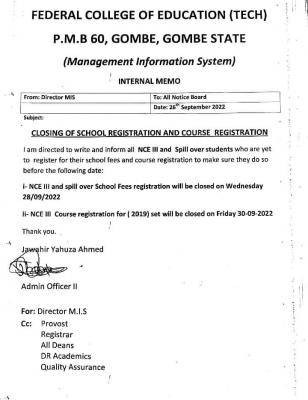
TO get Nigeria’s 10 million out-of-school children into school and learning, today, alongside development partners, we will announce millions of dollars of international support in a joint effort with President Goodluck Jonathan and his state governors.
When the president convenes the inaugural education summit – bringing his cabinet ministers, state governors and state education commissioners together with global partners – the international community will make an unprecedented commitment, which will bolster the $250 million of Nigerian government support with upwards of $250 million of global finance. This will be the first of a series of practical steps towards the delivery of education.
These arrangements – to support school building, recruitment and training of new teachers, and the implementation of new innovative teaching via tablets, phones and online school courses – are part of a global initiative to get every boy and girl to school by the end of 2015 with quality learning opportunities.
Our aim is to build a world where for the first time no boy or girl is denied the right to education. In this, the challenges faced by Nigeria are real and many – with 10.5 million primary school-age children not in education, Nigeria is home to the world’s largest out-of-school population.
Today, leaders from USAID from Qatar’s Educate a Child, from the Global Partnership for Education, from the business community represented by the Global Business Coalition for Education, along with other global development partners, will be prepared to discuss how their contributions can best be leveraged with federal and state plans of action.
These leaders recognize President Jonathan’s vision, and are standing by to give practical support to the Nigerian Federal Government and state governments in their renewed drive to put Nigeria’s children into school.
Nigeria has a shortage of nearly 1.3 million teachers. Basic infrastructure is lacking and there is a shortfall of up to 1.2 million classrooms. Worse, each year there are fewer children in school due to child marriages, gender and religious biases, and sheer cost for poorer families. For those that do find ways to get their children into school, learning can be limited, if it happens at all.
The number of adults in Nigeria who cannot read or write has risen to 35 million, confirming that illiteracy is a huge barrier to the future success of Nigeria’s economy. The number of girls who are left unable to read or write is worse still – with 52 per cent of young women who complete primary education remaining illiterate.
But with President Jonathan ready to take action, we know what must be done. Financial incentives must be fine-tuned to help state governments deliver. Teacher training must be improved by using new technology. The curriculum of Islamic schools must be strengthened to develop literacy and numeracy skills. Families must be supported in sending their children to school through conditional cash transfers. These have already been pioneered in some states, and have been particularly successful in encouraging the enrollment and attendance of girls.
Our delegation will put their support behind the implementation of state plans for education. We will look at what more can be done by making better use of the Universal Basic Education Fund to provide central ministry incentives alongside investments from the delegation itself.
Central ministry incentives
Nigerians themselves are calling for the education their country needs. In spite of the violence and attacks on education from extremist groups, nearly 20,000 Nigerians have signed the petition to support President Jonathan’s commitment to education. Nigerians seek safe schools for their children and, seeing President Jonathan’s commitment, are now looking to state governors to put in place the plans to deliver them. The continued mobilization of Nigerian citizens in solidarity with the global community, through petitions and letters of support, will be crucial in ensuring that the global community and government follow through on their promise of education.
Education in Nigeria will be revived – not simply because the Federal government is committed to doing so, and the state governments are receiving the support they need from the international community, but because all the people of Nigeria – from civil society and young people, to business and faith groups – are devoting their efforts and resources to making it a reality.


